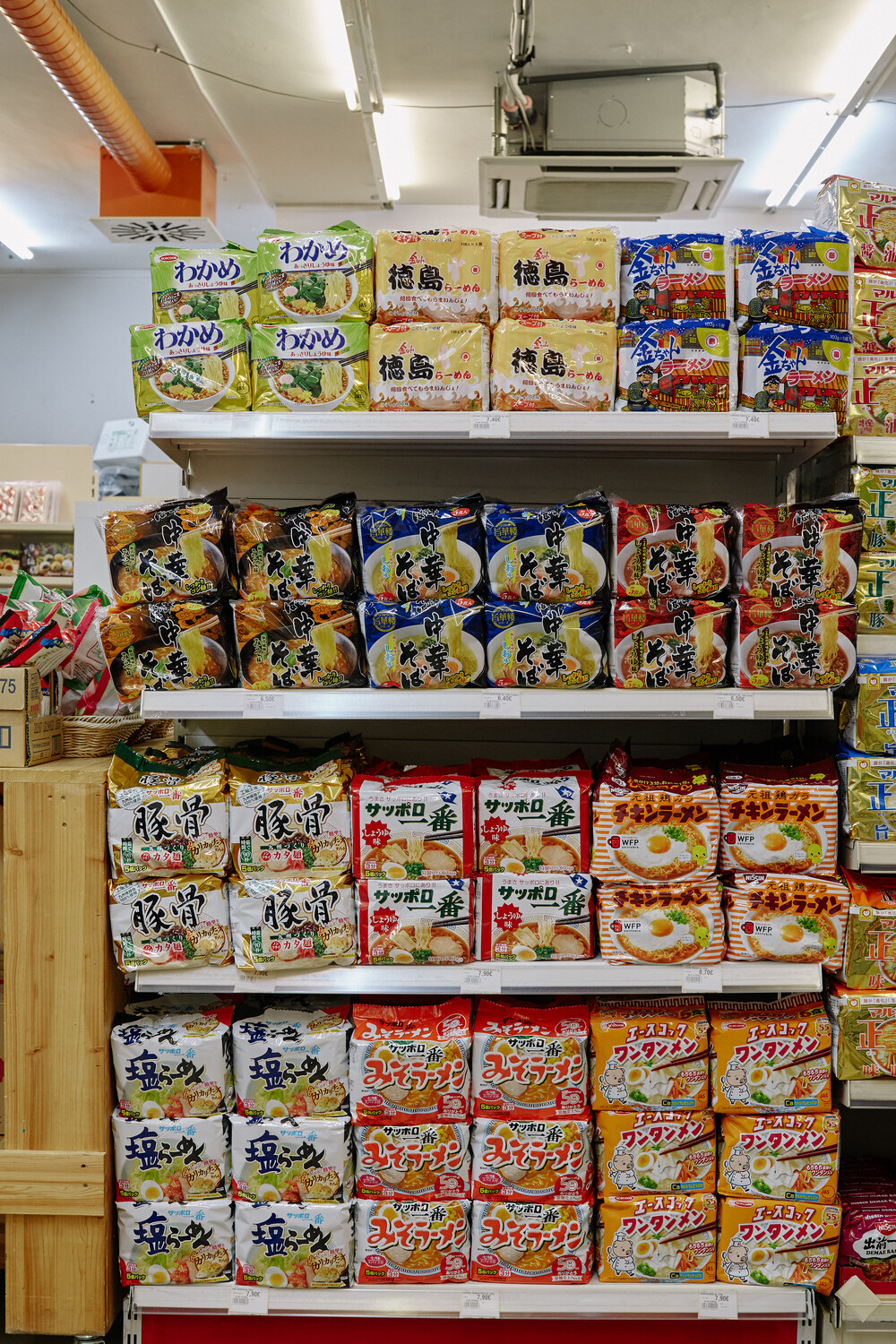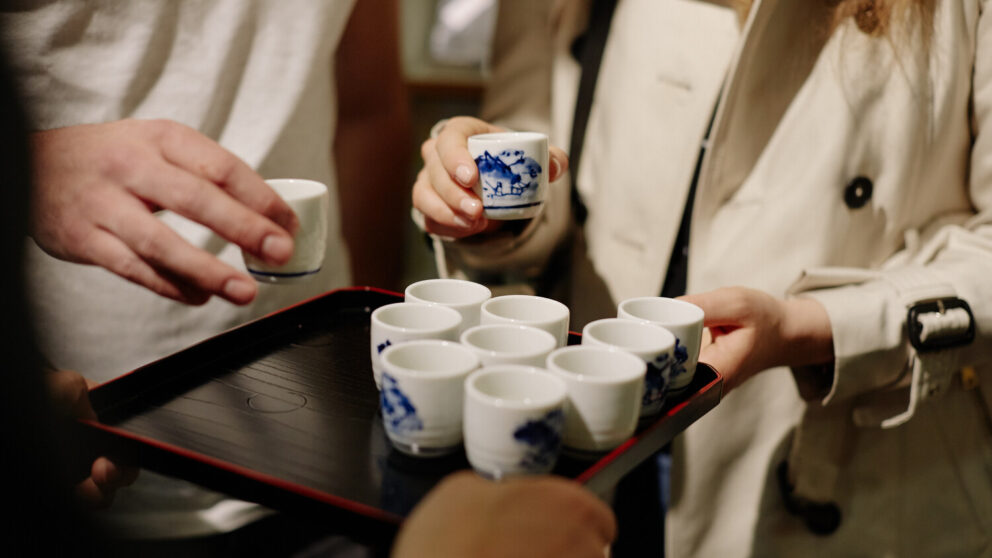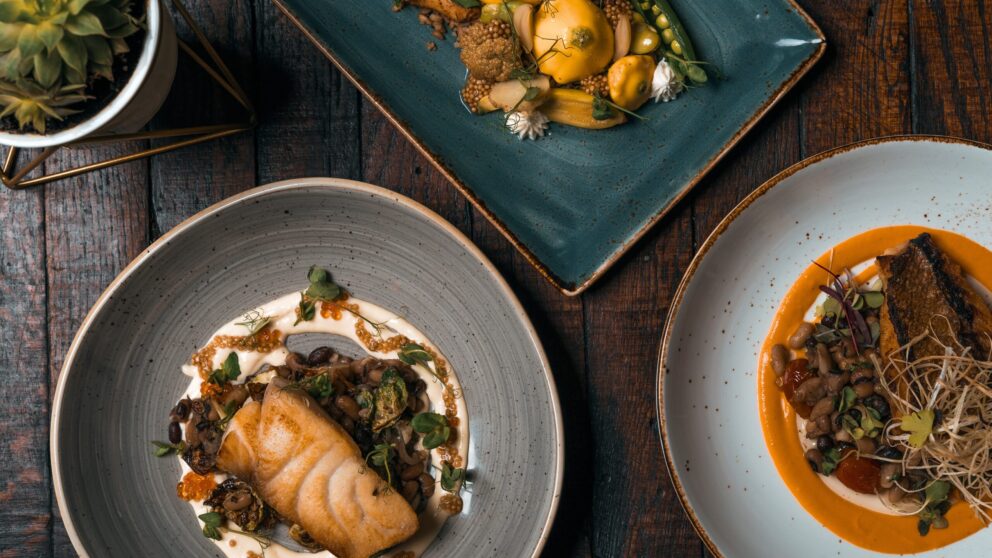
Six Japanese supermarket surprises
Six Japanese supermarket surprises
Bento boxes for the lunch break, the freshest fish and delicacies that you can hardly get anywhere else in Germany: Welcome to "Shochiku"!
Feeling lost? When it comes to most of our lives, that doesn't sound very desirable. But in the middle of Düsseldorf, this is precisely the kind of circumstance that, for once, provides genuine pleasure - at the Japanese supermarket "Shochiku," one of several on Immermannstrasse. The special thing about it: In the store in "Little Tokyo" you will not only find a range of products that you can hardly find anywhere else in Europe. Rather, it's original merchandise that the owners import directly from Japan several times a week. The fun part is that a little guesswork accompanies the selection of noodles, sauces and sweets. The descriptions on the packaging are in Japanese - the keyword being original goods. Only the fine print tells you what you're about to buy. But that's exactly what makes it so appealing, isn't it?
Potatoes for in between
Grilled sausages, grilled chicken and grilled sweet potatoes? While you often enjoy the first two dishes crispy-tender at stands in supermarket parking lots, you get to know the vegetable in a whole new way with "Shochiku". Baked on a kind of hot stone, the Japanese sweet potato is much smaller than the one we are used to and tastes sweet and delicate. A market employee tells us that many customers enjoy the vegetable (without its skin) as a snack. Sounds like something you'd like to try? You'll pay around five euros for this unusual appetizer. If your taste buds are more in the mood for something familiar - or at least better known - choose one of many bento boxes, i.e. a (plastic) bowl with a portion of rice, fish or meat (such as the trendy Kaarage) and various vegetables. Perfect for lunch in the office or the park around the corner, and so carefully arranged that the dishes seem almost too good to eat simply because of their appearance.
Pouring out pure (or better: polished) wine
Sake as far as the eye can see: a shelf several meters long full of rice wine awaits you in the Japanese supermarket at Immermannstraße 15. You're not sure which bottle you want, given the large selection, also imported entirely from Japan? No problem: several varieties are available for tasting free of charge in a refrigerator. By the way, a dry, well-chilled wine like "Harunasan Reihou" for around 29 euros goes well with sushi or sashimi. If you're wondering what the "Junmai Daiginjo" designation on the label stands for, it indicates how intensively the rice was polished (very important!), how slowly the fermentation took place at low temperatures, and the special care that went into the brewing process. The range of liquid specialties is rounded off by beer from the popular Kirin Ichiban brand, several types of gin, and Ramune lemonade from Kobe, Japan.
Rare sweets
Are you hesitant to try products that are unfamiliar to you? No problem, the "Shochiku" offer also makes it possible to get a feel for the products - for example, with sweets that are also known to German customers. For example, the chocolate-covered wafer strips from "Kit-Kat" are available on site in matcha, melon or strawberry flavors! Another very popular treat for in-between meals in Japan are the soft chewy sweets ("jelly") - made from powdered konjac root, among other things. Try the orange, grape and peach varieties or, if you prefer something more exotic, nutmeg. A bag costs around 3.50 euros. Your mouth is watering already? Even tourists who are not always in Düsseldorf can be happy, as the grocery store has its own online store.
Ramen, only different
No visit to a Japanese supermarket without rows of shelves full of - Ramen! While the soup experienced a few years ago, especially in dry variant a real hype (you remember, when it was available at every second Büdchen), it is the offer of the brand "Kubota" a meal with fresh noodles! Available in miso, tonkotsu (broth) and soy flavors, you can get the vegan dish for around four euros. You'll also find a comprehensive selection of instant variations in cups or bags, for example with curry, mild-sweet shoyu or miso flavoring. A little insider tip, If you want to give your soup an extra dose of spice: The soy sauce powder "Nihonichi Spice" (around seven euros) tastes fantastic. It's the first thing we reach for every time we go shopping.
As fresh as just caught
Boil, bake, fry or poach? In Japan, this is absolutely not the first choice when it comes to preparing fish. Japanese appreciate the food in its most pristine form - and enjoy salmon, tuna & Co. preferably raw. At "Shochiku," where the Japanese community in Düsseldorf also does their shopping as a matter of course, you can get a large selection in sashimi quality; yellowtail mackerel, fatty tuna and red sea bream, for example, are purchased from Japan every week by the store's owners. Speaking of fish: Onigri, the Japanese rice dumplings in the shape of a pyramid, are traditionally served with an umeboshi plum, but also with pear, pumpkin and tuna. By the way, eating the ingredients held in toasted nori leaves turns out to be a bit of a challenge. But be sure to try it yourself!
Tofu meets vegetables
Tender tofu, the most tender tofu, tofu from Japan: The natural product made from soybeans, such as the "Ken-Chan" variety (around four euros), is particularly creamy. On the same shelf, you'll find the right vegetables, such as radishes or yams, which are rather foreign to us and which the Japanese like to eat once peeled and grated raw, or on rice with soy sauce. Do you like the focus of Japanese cuisine on vegetable food anyway? Then try the very intense-tasting shimeji mushroom (around 2.50 euros) or the "common rattlesnake" (around five euros), which is one of Japan's most important edible mushrooms.
Title image: Düsseldorf Tourism




